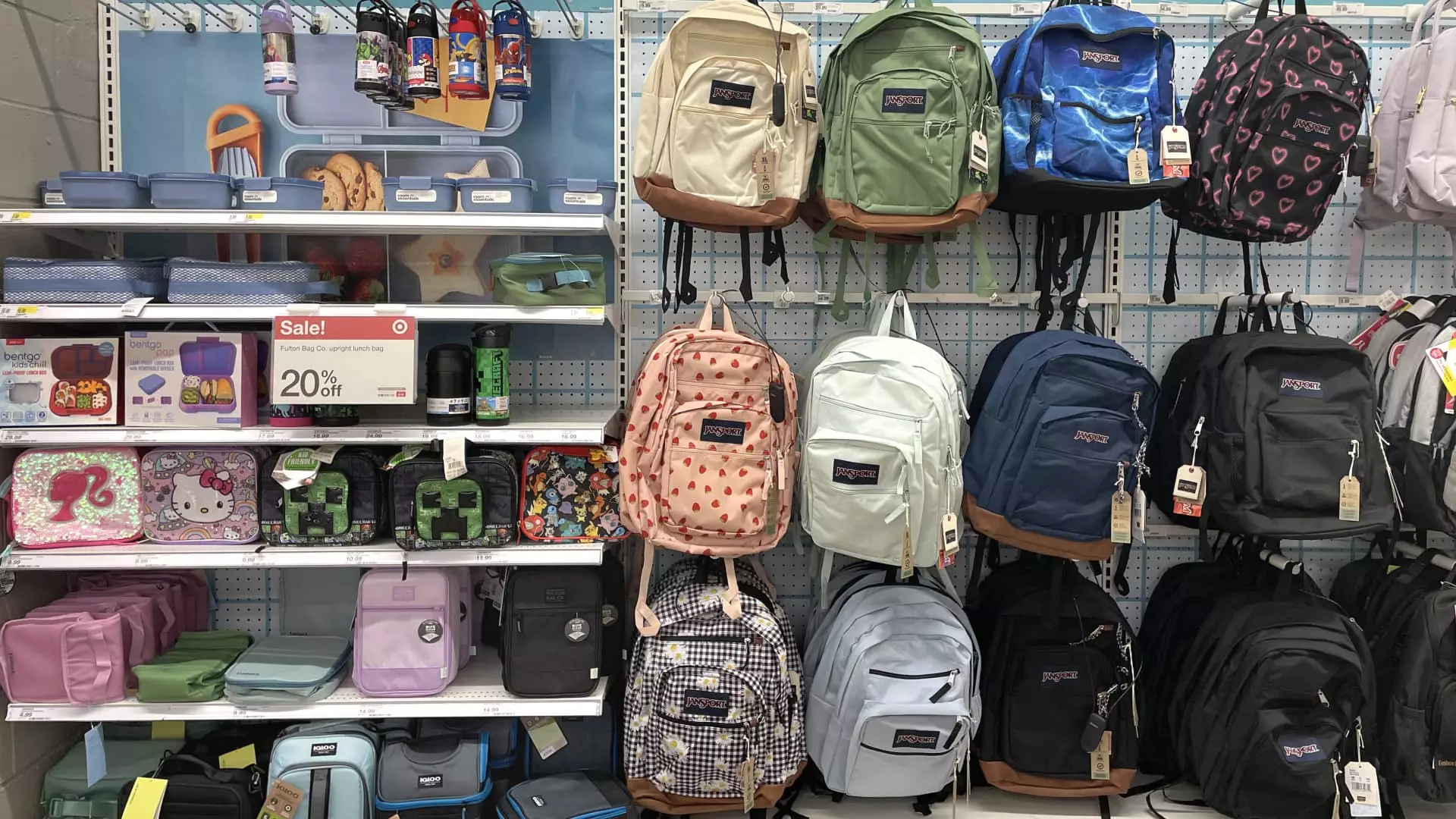In recent years, the narrative surrounding the economy has often been painted with broad strokes of resilience and growth. Yet beneath this optimistic veneer lies a fragile reality—one where policies like tariffs threaten to unravel the very fabric of American households. While inflation appears to be moderating on paper, the ongoing implementation of tariffs under President Trump’s administration casts a dark cloud over this apparent stability. These measures, promising to safeguard American industries, paradoxically risk burdening families just as they prepare for one of the most costly seasons in education: back-to-school shopping. It is a stark reminder that policies rooted in protectionism can have far-reaching and unintended consequences, disproportionately impacting those least equipped to shoulder additional costs—our children’s futures.
Rising Costs in a Shifting Economy
Every year, families tighten their belts to afford school essentials, yet this year’s shopping trip has become a more complex ordeal. Despite the official slowdown of inflation, key items like backpacks and supplies have seen prices driven upward—precisely when families are most vulnerable financially. Data reveals that while family spending has slightly dipped—from an average of $586 to $570 per child—the costs underlying these figures are climbing, thanks to elevated production expenses linked to tariffs. In essence, the true consumer price increase remains obscured, buried within the intricate web of supply chain disruptions and tariff-induced costs. This disconnect between official inflation metrics and actual household expenses underscores a critical flaw in measuring economic health: it fails to account for the real-world burdens placed on everyday Americans.
The Policy Paradox: Protectionism Versus Prosperity
The narrative that tariffs are a tool to revive domestic manufacturing falters when scrutinized through the lens of middle and lower-income families. President Trump’s tariff strategy, which aimed to impose substantial duties on international goods, was sold under the promise of protecting American jobs and industries. Yet, as economists like Jack Kleinhenz point out, the real-world consequence is a creeping increase in consumer prices, which erodes purchasing power at precisely the moment families need relief. This policy paradox reveals a fundamental flaw: protectionism, while politically appealing, often shifts the burden onto consumers, especially vulnerable ones with limited alternatives. The delay in tariff enforcement offers only temporary reprieve, but it fails to address the core issue—roads to economic stability must prioritize fair trade and robust social safety nets over protectionist measures that threaten to deepen inequality.
Changing Consumer Behaviors and Growing Anxiety
As tariffs and inflation intertwine, consumers are forced to adapt in ways that threaten to diminish the quality and variety of their children’s educational opportunities. A significant shift in shopping habits—such as switching brands, opting for cheaper alternatives, or even forgoing non-essential items—marks a departure from previous spending patterns. The fact that over half of parents are cutting back on essentials highlights a broader societal concern: economic uncertainty influences behavior that could have long-term developmental impacts on children. It is no longer just about saving money but about confronting a reality where the costs of essential supplies may outpace household budgets, leaving families scrambling for compromises that could ultimately undermine the quality of education and preparation for the coming school year.
Uncertainty as a Catalyst for Poor Policy Outcomes
As the Trump administration delays tariff implementations amid economic turbulence, the true impact remains uncertain. Nonetheless, this uncertainty breeds caution among consumers, who preemptively cut spending or switch brands in anticipation of higher costs. Such behavior, while understandable, signals a broader erosion of confidence in the economy—a sentiment that can slow down growth and stifle recovery. Policymakers must recognize that prolonged uncertainty, coupled with protectionist tariffs, does not foster stability but instead exacerbates inequality by disproportionately affecting low- and middle-income families. A forward-thinking approach would prioritize stability, equitable growth, and consumer protection, rather than relying on policies that further complicate the delicate balance of the American economy.
The Democratic Imperative for Compassionate Policy
From a center-wing liberal perspective, it is imperative to challenge policies that deepen economic disparities. The focus should shift toward fostering a resilient economy that invests in social safety nets and supports families through targeted relief rather than punitive tariffs that raise costs. Education is the cornerstone of a fair society, and the current trajectory risks making it less accessible for many. Policymakers need to consider the broader social impact—rising costs, diminished choices, and economic insecurity threaten to stifle upward mobility and perpetuate inequality. Instead of doubling down on protectionism, a balanced approach emphasizing fair trade, investment in domestic manufacturing—and crucially, safeguarding families from unnecessary financial strain—is essential to ensure that the promise of economic growth is shared equitably.
(Word count: approximately 800)


Leave a Reply